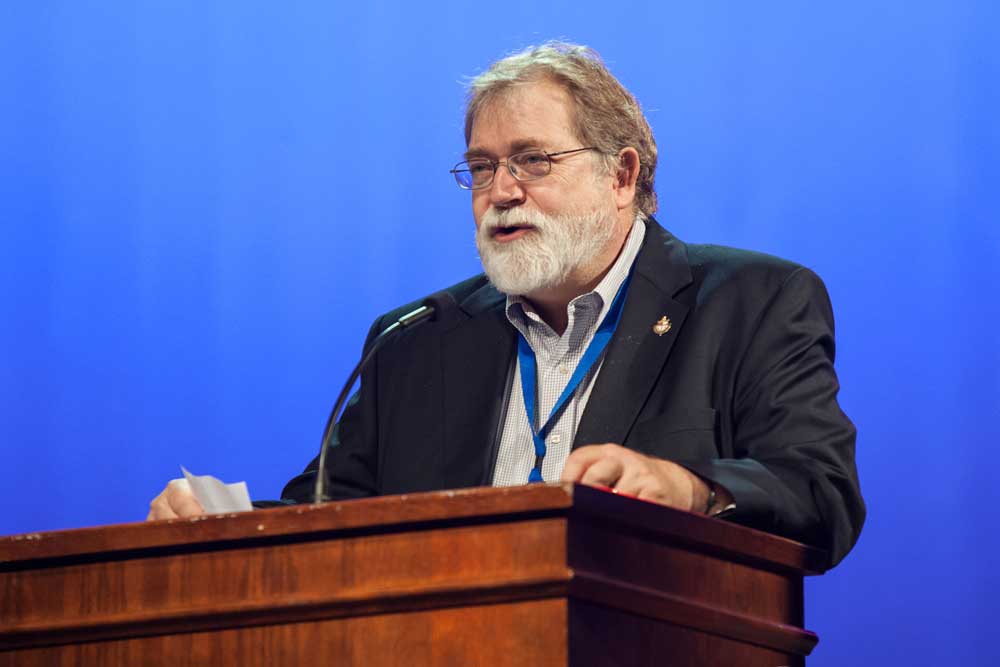Dear Brothers and Sisters in Christ,
It has been just over two weeks since I have returned from GAFCON 2013, and a good time therefore to reflect on the significance of our gathering – some 1358 delegates, including 331 bishops, 482 other clergy, 545 laity from 38 countries representing tens of millions of faithful Anglicans worldwide.
Personally, I was deeply encouraged by the plenary sessions on the East African revival, the daily times of worshipping together (so lively and Spirit filled!) and the outstanding expositions of Paul’s letter to the Ephesians. The networking we were able to do during morning and afternoon tea and meals together will bear fruit in Gospel ministry partnerships and cross-cultural ministry networks among confessing Anglicans for years to come.
But among the most important statements to come out of Nairobi was just this: “We believe we have acted as an important and effective instrument of Communion [emphasis added] during a period in which other instruments of Communion have failed both to uphold gospel priorities in the Church, and to heal the divisions among us.” (from the Introduction to The Nairobi Communique).
If I may paraphrase one of the outstanding expositions of Ephesians, chapter 4, from the Rev. Dr. John Yates III, our unity as Anglican Christians is nothing less than the gift of God through Jesus Christ and his death on the Cross. Ephesians 4:3-6 clearly demonstrates what is essential to the unity of the Church, a “oneness” that we have in Jesus Christ, a “oneness” which is epitomized in the 7 fold repetition of the word “one”- one Lord, one faith, one God and father of all. Therefore, since our unity is a gift that we receive when we turn to God the Father through Jesus Christ and His Cross, it is not something that we can ever construct ourselves. In fact, if we try to seek or create unity apart from the Gospel of Jesus Christ and the Cross then we engage in idolatry. This is because we are not humbling ourselves and turning to the Cross of Jesus Christ which is the only way we receive that gift of unity and instead are turning to our own, man-made objects of unity.
This is precisely why all attempts to heal the divisions in the Anglican Communion, and to uphold Gospel priorities, have failed, because they have been rooted in discussions over structures, dialogue and processes apart from the cross of Christ and the call to repentance. If there is anything we can learn from the East African revival, it is that we find our essential unity at the foot of the cross of Jesus Christ, “walking in the light with each other” (I John 1:6-9) as we confess our sins to each other, genuinely repent, and resolve to move forward together in “confidence that the gospel has the power both to save the lost in all the world and to transform the church, rather than seeing the church conformed to the world.” (Nairobi Communique, page 2.)
What part then do we play in “making every effort” to keep this God-given gift of Christian unity or “communion” as Paul exhorts us in Ephesians 3? Surely it cannot be by walking the same roads we have traveled in the Anglican Communion for the past 10 years. Even the Archbishop of Canterbury in his sermon at All Saints Cathedral the Sunday before GAFCON acknowledged that the official Anglican “Instruments of Unity” have failed. As unity is given to us through the cross of Jesus Christ, so we must maintain it by always returning to the cross of Christ in humility, repentance and genuine submission to the power of the Gospel.
This week I have been studying the canons or “church laws” that came out of the very first Ecumenical Council of Nicaea in 325 A.D. While I am grateful that the Reformation did away with the need for extravagant acts of public “penance”, I was struck by these early Apostolic-era canons that emphasized the seriousness of sin and the need to genuinely repent. Through public acts of “penance” and the exceptional grace that was available through the church (and its leaders), the Church proclaimed forgiveness and restored sin-broken people to fellowship with God ( See Canons 10-14, Council of Nicaea in Bright W. The Canons of the First Four General Councils, pp. 41-55). From the practice of Christians as early as 325 AD, through the East African revival of the twentieth century, Christians have found their true unity at the foot of the cross of Jesus Christ – where they have found not only confidence in the Gospel, but its very power to change us from the inside out.
I am hopeful and confident that out of GAFCON 2013 the Global Fellowship of Confessing Anglicans is moving in that same spirit – that however we come together, however we meet, however we act moving forward, we will be coming back always to the foot of the cross of Jesus Christ, where we will always find the ground for humility and genuine repentance and the power of his transforming love for all people, at all times and in all places
Yours in Christ
The Rev. Canon Phil Ashey
Chief Operating & Development Officer
American Anglican Council
The above letter from Canon Phil Ashey first appeared in the November 12, 2013 edition of the AAC’s weekly International Update. Sign up for this free email here.


